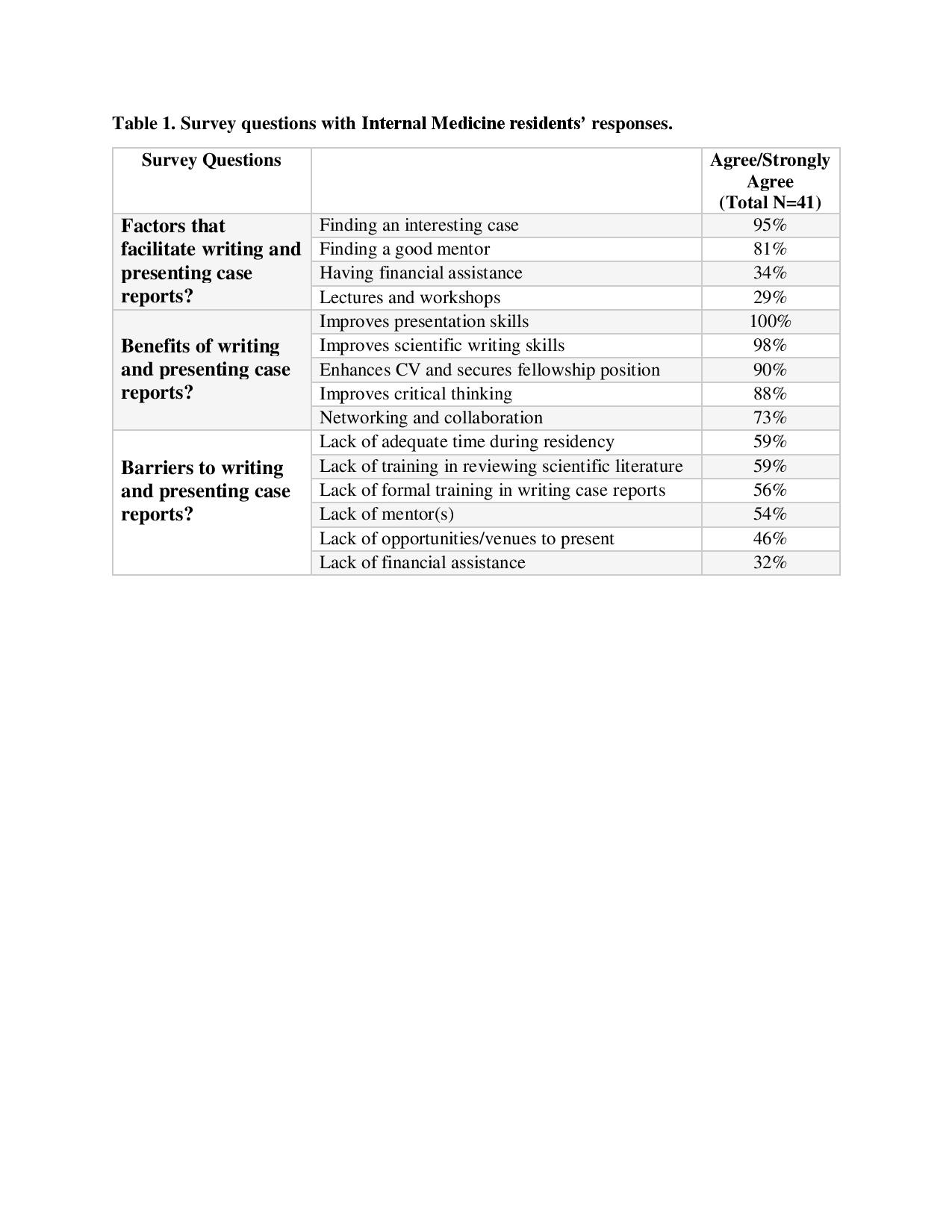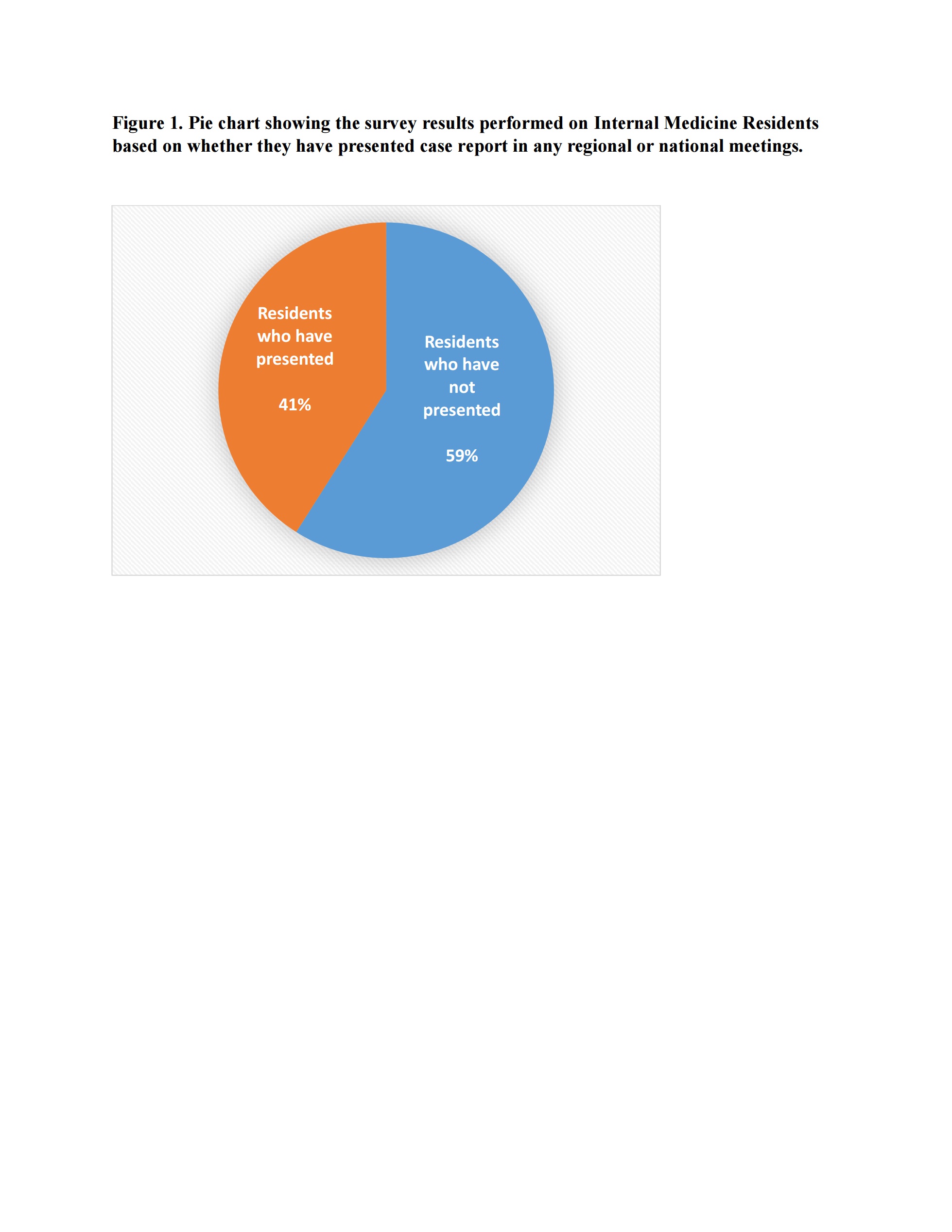Background: Writing and presenting case reports provides opportunity for scholarly activities and promotes scientific writing and critical thinking. This study assesses Internal Medicine residents’ perceived benefits, challenges, and barriers regarding writing and presenting case reports.
Methods: A Qualtrics survey was emailed to total 125 Internal Medicine Residents of the Medical College of Wisconsin. The survey questionnaire aimed to assess if the residents have presented case reports previously, their perceptions on factors facilitating case report writing, its benefits and the barriers to writing and presenting case reports. Responses were obtained on a 5-point Likert scale. Data were analyzed as respective frequencies and percentages. The comparison between the responses between those who have and have not presented case reports previously was performed using Fischer exact test. All analyses were performed using SAS 9.4.
Results: Based on the preliminary data, 41 residents (33%) completed the survey. 59% said they have not presented case reports previously (Figure 1). 95% of the residents believed (‘agreed’ or ‘strongly agreed’) that finding an interesting case was an important factor in facilitating writing case reports, while 81% perceived finding a good mentor as equally important (Table 1). All respondents (100%) thought case report writing/presenting can improve their presentation skills. Other perceived benefits of case report writing/presenting included improving scientific writing skills (98%), enhancing CV and securing fellowship position (90%) and improving critical thinking (88%). Perceived barriers to case report writing included lack of time during residency (59%), lack of training in reviewing scientific literature (59%), lack of training in case report writing (56%) and lack of a mentor (54%). The perceived barriers did not differ between the residents who have not and those who have previously presented case reports: lack of time during residency (63% vs 53%, p=0.75), lack of proper training in reviewing literature/writing case report (75% vs 53%, p=0.19), and lack of a mentor (54% vs 53%, p=1.00). Taken all together, lack of proper training and/or lack of mentor were perceived as the barrier by 88% of those who have not presented versus 65% of those who have presented case reports previously (p=0.13).
Conclusions: Out survey-based study on Internal Medicine residents showed that the majority have not presented case reports in any meetings. While the residents believed case reports have multiple educational values, there were some perceived barriers such as lack of time, proper training, and a good mentor. Our survey highlights the importance of a structured mentorship program with the capability of providing proper training to the residents with some protective time allocated to the residents for scholarly activities.


